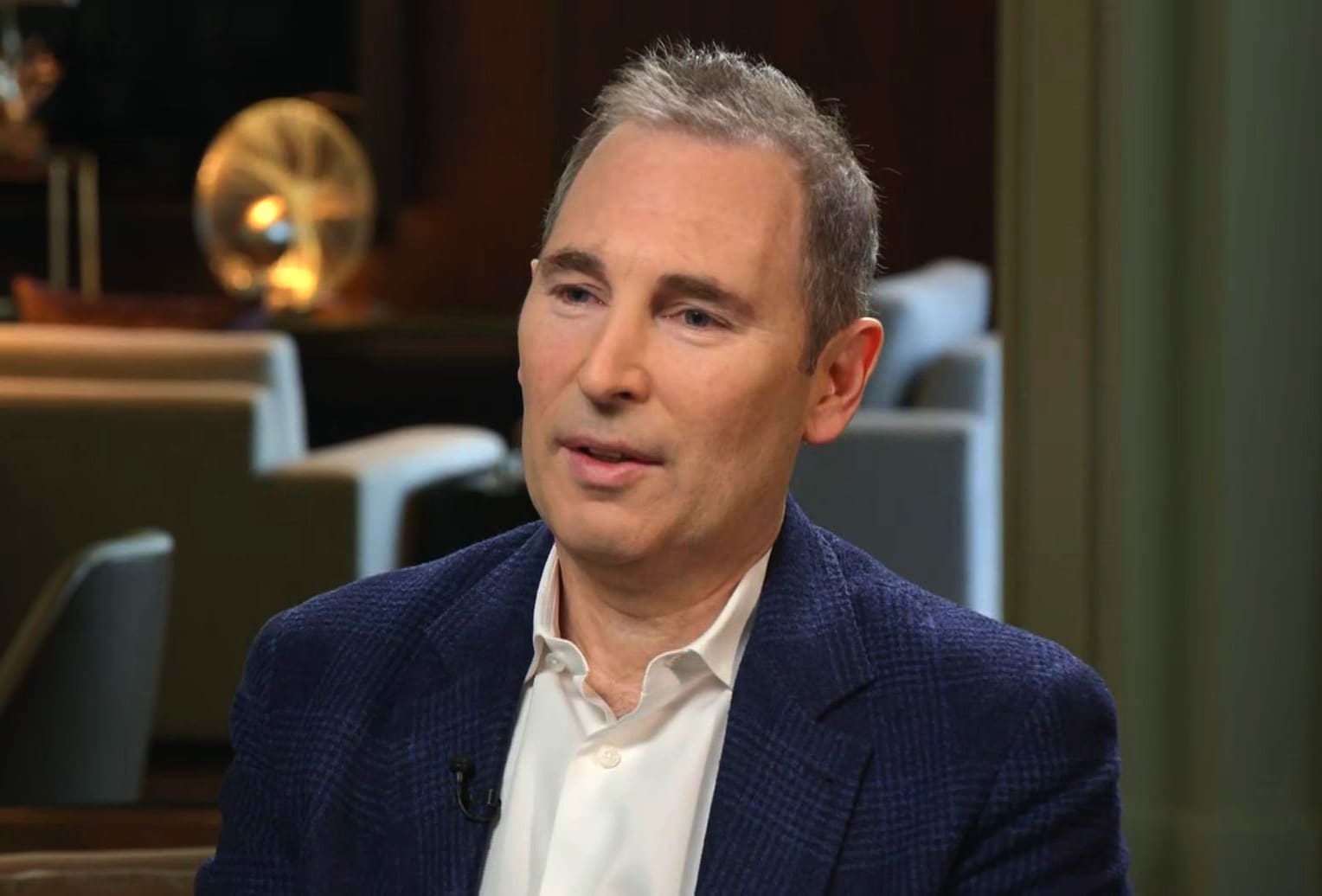Andy Jassy, CEO of Amazon Web Services.
CNBC
Getting kicked off Amazon Web Services is rare, but it has enormous consequences.
It happened this week, when Amazon dropped Parler, a social network that gained traction from conservatives after Twitter banned President Donald Trump and housed content that encouraged violence. Parler filed suit against Amazon in federal district court in an attempt to stop Amazon from suspending Parler’s account, and Amazon pushed back, requesting that the court deny Parler’s motion.
The incident demonstrates a type of power that Amazon wields almost uniquely because so many companies rely on it to deliver computing and data storage. Amazon controlled 45% of the cloud infrastructure in 2019, more than any other company, according to estimates from technology research company Gartner. The app survived without being listed in Apple and Google’s app stores, but getting sent away from Amazon’s cloud has left Parler absent from the internet for days.
Parler’s engineering team had built software that drew on computing resources from Amazon Web Services, and the company had been in talks with Amazon about adopting proprietary AWS database and artificial intelligence services, the company said in a district court filing on Wednesday.
It would take time to figure out how to perform similar functions on Parler’s own servers or a cloud other than AWS. And in the case of Parler, time is critical, because it came as the service was gaining attention and new users following Twitter’s Trump ban.
Parler’s engineers could learn to use other computing infrastructure, or the company could hire developers who already have that knowledge. But because no cloud provider is as popular as Amazon, people skilled in, say, Oracle’s cloud aren’t as as easy to find as those who know how to build on AWS.
The warnings were there
The swiftness with which Amazon acted shouldn’t come as a shock. Companies have been disclosing details about their deals with Amazon that warn of these kinds of sudden discontinuations for years.
In 2010, DNA sequencing company Complete Genomics said that “an interruption of services by Amazon Web Services, on whom we rely to deliver finished genomic data to our customers, would result in our customers not receiving their data on time.”
Gaming company Zynga warned about how its AWS foundation could quickly vanish when it filed the prospectus for its initial public offering in 2011. At the time, AWS hosted half of the traffic for Zynga’s games, such as FarmVille and Words with Friends, the company said.
“AWS may terminate the agreement without cause by providing 180 days prior written notice, and may terminate the agreement with 30 days prior written notice for cause, including any material default or breach of the agreement by us that we do not cure within the 30-day period,” Zynga said.
AWS can even terminate or suspend its agreement with a customer immediately under certain circumstances as it did in 2010 with Wikileaks, pointing to violations of AWS’ terms of service.
Parler started using AWS in 2018, long after the Wikileaks incident and the first corporate disclosures about the possibility of cloud interruptions.
When AWS told Parler it planned to suspend Parler’s AWS account, it said Parler had violated the terms repeatedly, including by not owning or controlling the rights to its content.
Over the course of several weeks, AWS alerted Parler to instances of user content that encouraged violence, Amazon said in a court filing. More of that content surfaced after protesters stormed the Capitol building in Washington on Jan. 6, interrupting Congress’ confirmation of the Electoral College results from the 2020 presidential election. AWS conveyed that Parler wasn’t doing enough to speedily remove that sort of information from its social network.
Parler could have protected itself more. Large AWS customers can sign up for more extensive agreements, which allow more customers time to get into compliance if they wind up breaking rules.
Gartner analyst Lydia Leong spelled out this difference in a blog post: “Thirty days is a common timeframe specified as a cure period in contracts (and is the cure period in the AWS standard Enterprise Agreement), but cloud provider click-through agreements (such as the AWS Customer Agreement) do not normally have a cure period, allowing immediate action to be taken at the provider’s discretion,” she wrote.
Other cloud providers have their own terms their customers must follow. AWS now has millions of customers, though, and it holds more of the cloud infrastructure market than any other provider. As a result, many organizations could be exposed to the sort of treatment Parler received, rare as it is, if they don’t behave in accordance with Amazon’s standards.
Parler recognized the drawbacks of being beholden to a cloud provider, but ultimately, the flexibility clouds offer was too appealing to ignore. “I’m personally very anti-cloud and anti-centralization, though AWS has its place for high-burst traffic,” Alexander Blair, Parler’s technology chief, wrote in a post on the service.
Parler and Amazon did not immediately respond to requests for comment.
WATCH: Apple pulls Parler from App Store amid crackdown on violent posts
